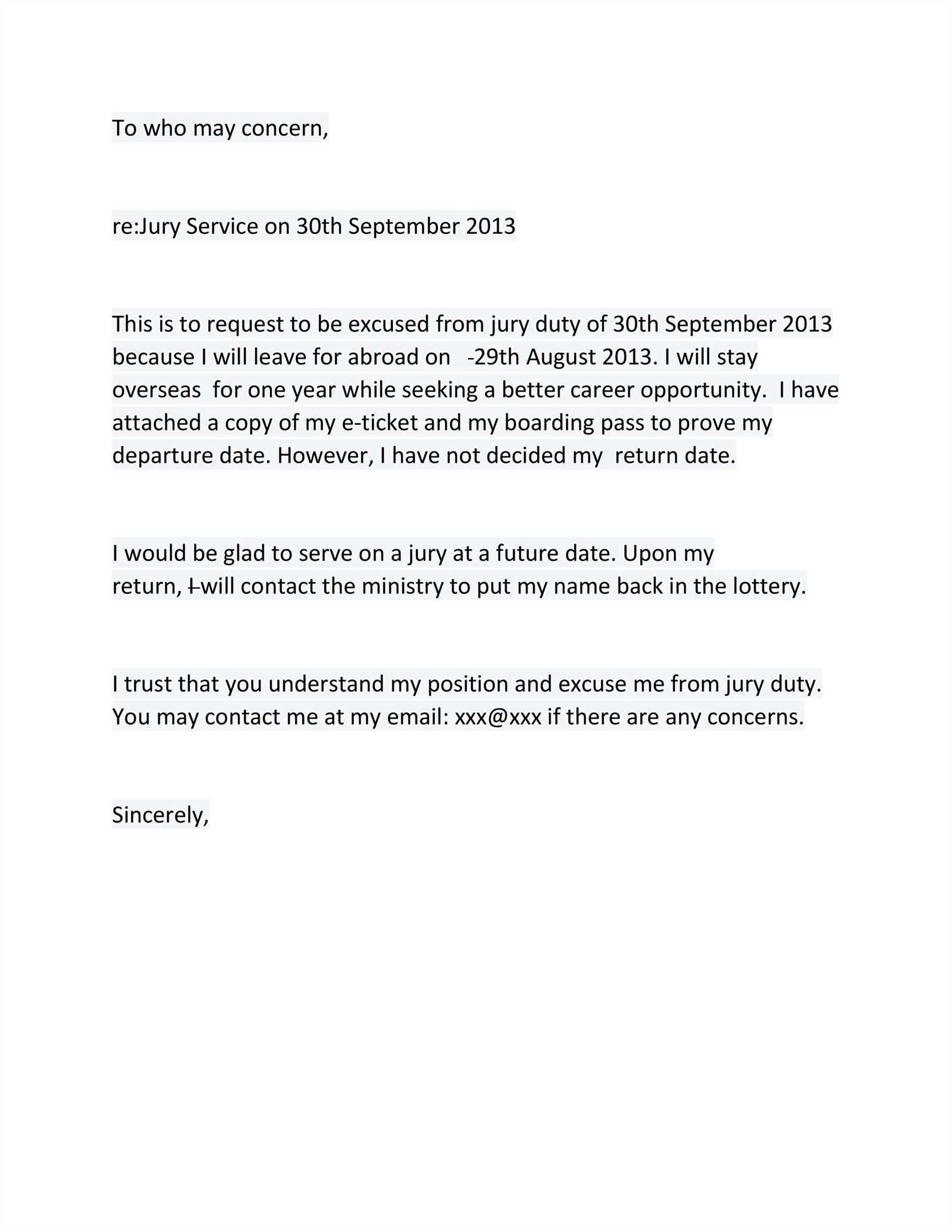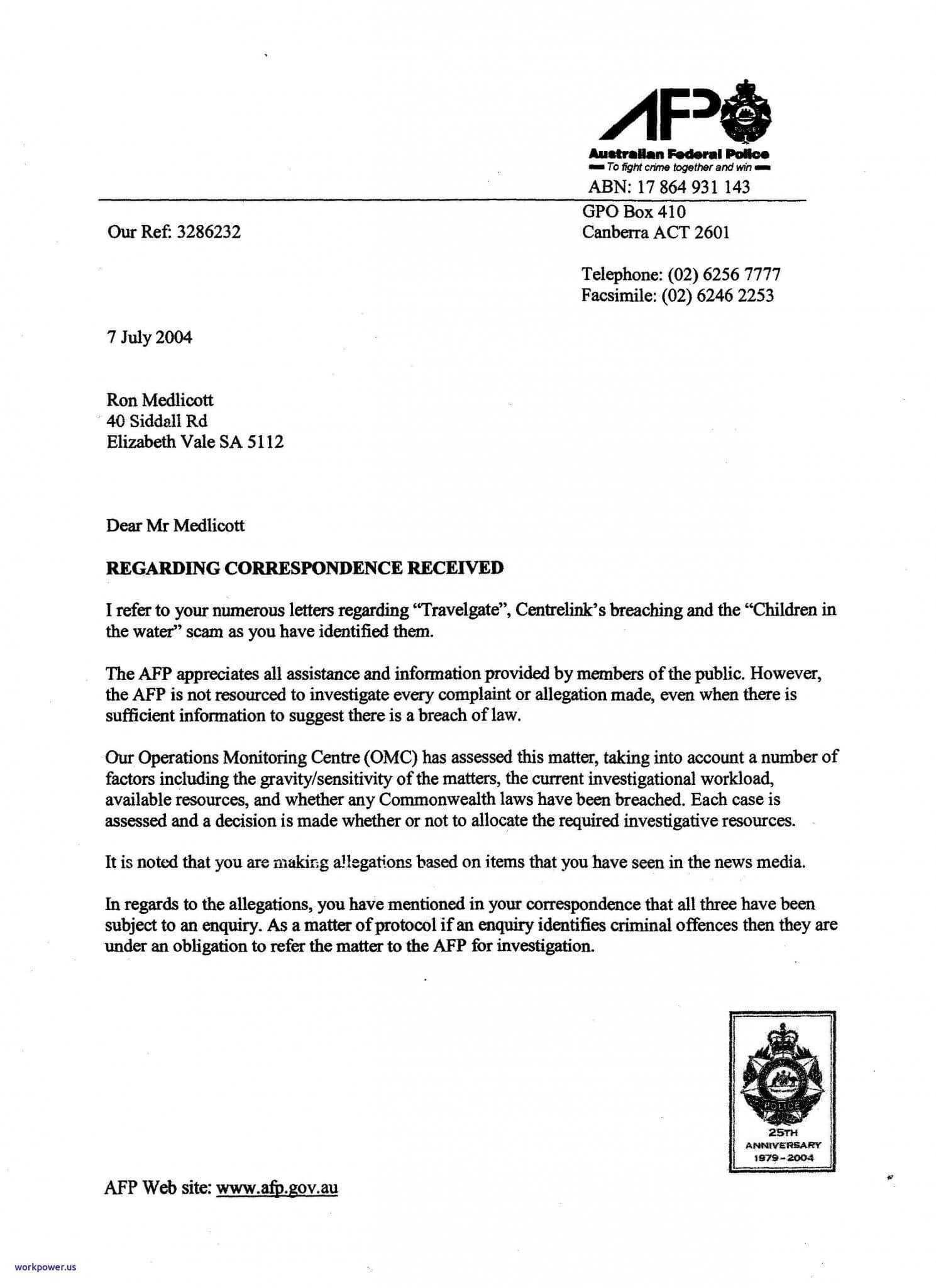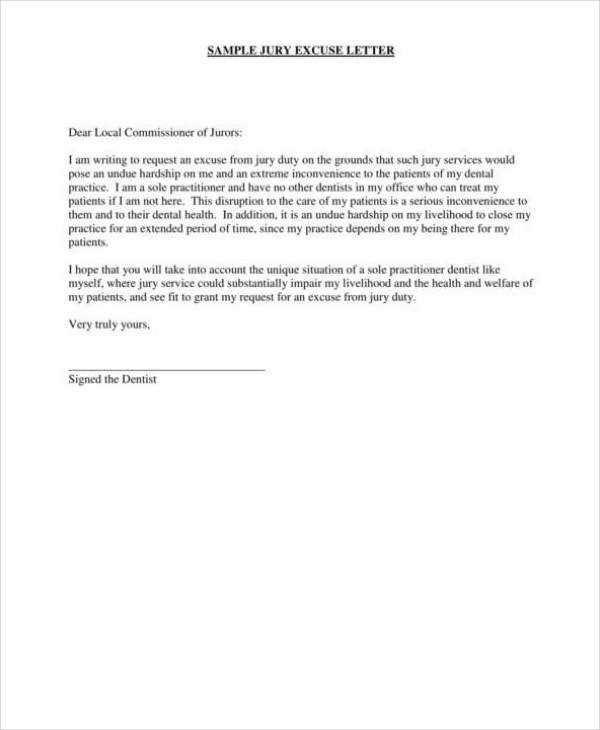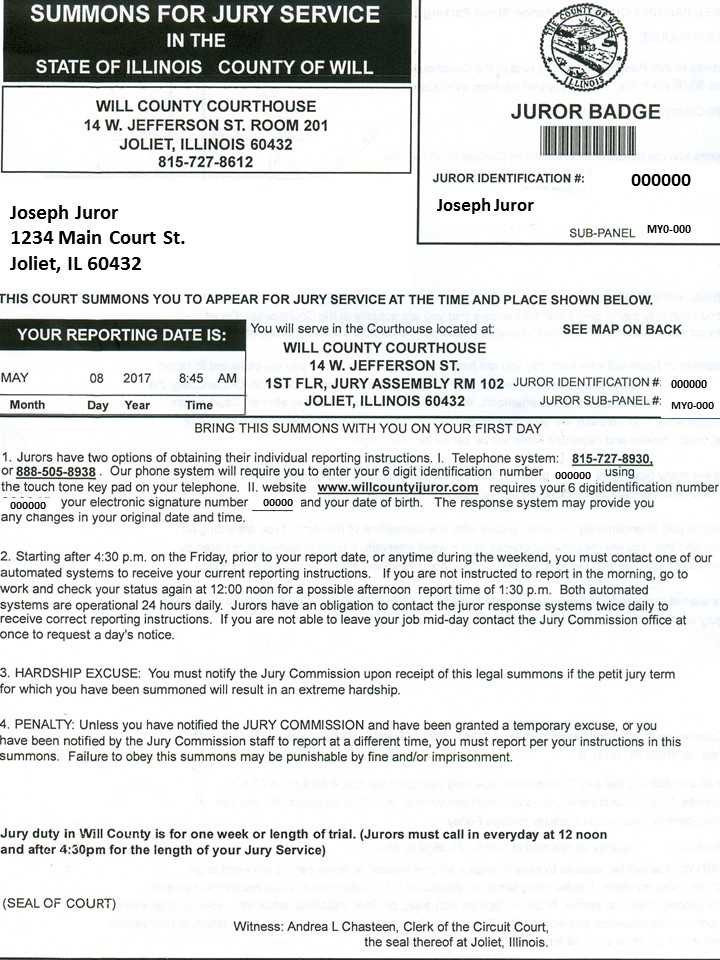Jury Duty Excuse Letter Template

There are times when personal circumstances prevent an individual from participating in required legal responsibilities. In such cases, it’s essential to provide a clear, professional request to be excused from the commitment. Crafting a well-structured communication can help you navigate this process smoothly and increase the likelihood of approval. This guide will walk you through the key steps to write such a message effectively.
Understanding the Request Process

Before drafting your communication, it’s important to understand the guidelines set by local authorities or courts. Most systems allow for deferrals or exemptions under certain conditions, such as medical issues, travel, or significant personal matters. Make sure to gather any necessary documentation that supports your claim. Following the right procedure increases the chances that your appeal will be accepted without delay.
Components of a Successful Request
- Introduction: Begin by addressing the relevant authority, mentioning the specific service you are referring to, and stating your request clearly.
- Reason for the Request: Explain your situation concisely. Avoid over-explaining, but ensure the reason is understandable and appropriate for the circumstances.
- Supporting Information: If possible, attach any relevant documents or evidence that back up your claim (e.g., doctor’s notes, travel schedules, etc.).
- Conclusion: Politely close by expressing your willingness to comply with the process and provide any additional details if necessary.
Sample Structure for Your Request

- Greeting: Dear [Name of the authority or organization],
- Request Statement: I am writing to request a deferral from my legal obligations scheduled for [date].
- Reason: Due to [briefly describe the reason, e.g., medical reasons, family emergency], I am unable to participate at this time.
- Additional Details: Attached are supporting documents to clarify my situation.
- Closing: I appreciate your understanding and consideration of my request. Please let me know if you need any further information.
Submitting Your Request
Once you have drafted your message, ensure it is sent through the appropriate channels. This could be by mail, email, or an online submission form, depending on the system in place. Make sure to check the submission deadlines and keep a copy of your request for your records. Following up with the relevant office a few days after submission can help ensure your request is being processed.
Why You Might Need an Excuse Note
How to Create a Formal Request for Deferral
Common Grounds for Postponing Jury Service
Key Components to Include in Your Note
Sample Templates to Guide Your Letter
Effective Ways to Submit Your Request
There are instances when personal circumstances prevent someone from fulfilling a required civic duty. In these cases, submitting a formal request to delay or be excused from participation is necessary. This section will explore the reasons behind such requests, the process of crafting a formal appeal, and what you should include to ensure it’s effective.
Understanding the Need for Deferral
Sometimes, unavoidable personal or professional obligations can conflict with your scheduled legal responsibilities. Whether due to health concerns, urgent family matters, or professional conflicts, you may find it necessary to request a delay. It’s essential to approach this request respectfully and follow the proper procedure to avoid misunderstandings.
Crafting a Formal Deferral Request
Creating a structured and polite request is key to a successful deferral process. A formal appeal typically includes a clear explanation of your situation, backed by any supporting documentation. Make sure to address the appropriate authority, present your case concisely, and express gratitude for their consideration. This professional approach helps ensure that your request is taken seriously.
Common Grounds for Postponing Participation
- Health Issues: Medical conditions that require immediate attention or prolonged recovery may justify a delay.
- Family Emergencies: Urgent family situations, such as caring for a sick relative or a funeral, are valid reasons for requesting a postponement.
- Work Commitments: Critical work responsibilities that cannot be rescheduled may also be considered grounds for deferral.
Key Components of Your Request
- Clear Introduction: Begin by addressing the appropriate person or office and explaining why you’re writing.
- Reason for Request: State the specific issue preventing you from fulfilling your obligation, keeping it clear and to the point.
- Documentation: Attach any necessary supporting documents that reinforce your claim.
- Closing: Politely ask for consideration and offer to provide further details if required.
How to Submit Your Request Effectively

Once you have written your appeal, the next step is to submit it through the correct channels. Whether via email, online portal, or traditional mail, ensure you meet all submission deadlines. Follow up after a few days to confirm receipt and check on the status of your request. Keeping a copy of your submission is important for future reference.